We hear other natural, or grass fed producers how they don’t want or need government inspectors on their farm or ranch and say they don’t need them to tell them how to do the “right thing.†Standing firm against “big government intervention in small, sustainable agriculture†is the reason they cite for not being organic.
We’ve heard it time and time again. Caryl and I look at each other and smile. Or, if we’re a little low on sleep, we get a little mad.
We see through their little anti-government rant. In a word, it’s a ruse. The truth of the matter, we know, is that they don’t and won’t make the rigorous standards required for certification, sometimes out of ignorance of what organic certification would really require of them, and sometimes because they know they couldn’t or wouldn’t want to comply with the requirements.
So they slam the organic certification process.
As a result, Caryl and I get really cynical about “natural†food production, and “grass-fed†beef production claims about being chemical free. We get a little jaded when the ignorant person behind the meat counter claims that grass fed and organic are one and the same. I think it’s because we know too much.
Caryl and I have been in agriculture for all of our lives. She hails from a Midwestern corn and soybean farm that was run very expertly by her dad. He worked in the state of the art, and produced crops by the most productive way Purdue Agricultural experts advised fully utilizing all of the chemical and genetic technology he could. He was a really good farmer.
A thousand miles away, I was raised working on produce muck farms and dairies that likewise embraced all of the chemical models of production known at that time. It was the middle of the so called “green revolution†and the glory days of American agriculture where chemicals were embraced and unquestioned. I remember chemical headaches and skin burns from working shirtless in the humid 99 degree sun while hand applying herbicides and fertilizer. It never was considered that this was a toxic working condition. We were growing food, after all. It was a high calling. It was the 1970s, and America was the breadbasket of the world. And agricultural chemicals were hailed as innovations that would continue to feed a growing population. It was a good thing that the work previously done by hand could now be done with chemicals.
Even after we started raising cattle about 24 years ago, we were schooled by neighbors and county agents about better living for our cattle through chemistry. We dabbled in such things, but learned fairly quickly by observation that we could trust our cattle to mind their own wellness. Instead of yielding to the siren song of chemicals, we turned our backs and filled our ears with the song of birds and the teeming life underfoot. We’ve been certified organic for about 14 years now.
One of the things farming and ranching organically is that it does make one a better observer. I was talking with a friend a few days ago who ranches on the southern Great Plains. He said he observed that none of his neighbors had dung beetles, the cool little insects that gather up dung and roll them into little balls and bury them in the soil. Soil scientists have found that dung beetles improve soil water holding capacity and reduce surface run-off, and they are the start of the decomposition chain that takes a cow pie from surface manure to soil nutrients. For many years he couldn’t figure it out until he purchased some cattle. The dung beetles passed up the new cattle dung, but were happy to work on dung in the adjacent pasture that came from his cattle. The difference? The new cattle had been treated with ivermectin, an insecticide poured on the backs of cattle to treat parasites, both external and internal (yes, it soaks in). Enough of the insecticide remained in the dung to make it unattractive to the dung beetles.
Ivermectin use is ubiquitous among cattle raisers. Grass fed, pasture raised, natural…my observation is that no matter the label, ivermectin or a similar insecticide is part of their protocol.
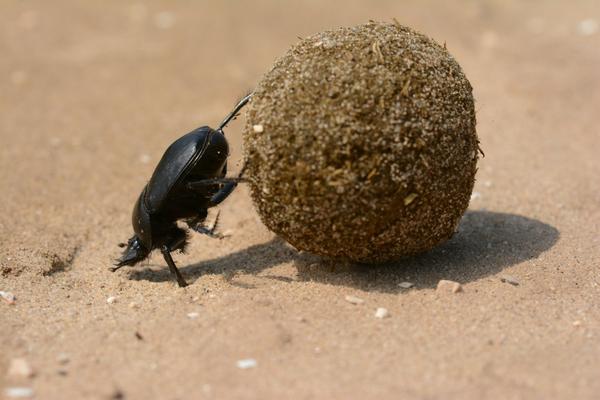
While our high mountain valley does not have dung beetles, there are other decomposers that happily start the chain of cow pie to soil nutrients. I like watching what we call “golden cow pie flies.†Their iridescent yellow bodies hover and land on the fresh cow pies and lay their eggs. As the larvae hatch they provide food for a number of different birds, who while scavenging for larvae also spread out the cow pie, which then rapidly incorporates into the soil. Some of the cow pies get missed by the birds, and the larvae grow to adult flies and exit the cow pie through a number of holes. Even then, the cycle works because the holes allow moisture to work into the cow pie, and it starts to disintegrate even without the help of the birds.
Watching cow pies…it beats surfing facebook. Really.
My brother made an observation similar to my friend in the Great Plains. On our Idaho ranches with an aggressive parasite control program, the golden cow pie flies are absent or limited, and the cow pies stick around a long time.
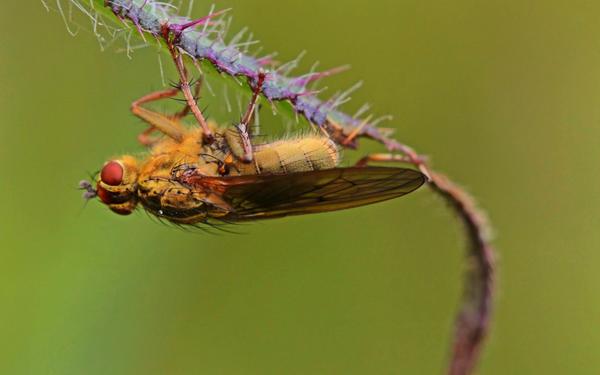
Of course, there’s more benefits than cow pies. We think it is a growing protocol that can benefit all the parts. It’s why we worked with our local Forest Service and Bureau of Land Management agencies to certify as organic our entire range of 70 square miles.
To our knowledge, it is a first in the nation effort on public lands. Cooperatively, together, we manage weeds on the range with human labor, cattle management, and biological controls (mostly insects).
It’s why two days ago, we spread $2500 worth of Cyphocleonus beetles over 40 square miles to naturally control purple spotted knapweed, the ubiquitous Eurasian weed that strikes terror on natural systems with the root chemicals it exudes that prevents all other plants from living there.
​​​​​​​
Operators on every other ranch in Central Idaho and every other federally managed allotment use chemicals to kill knapweed.
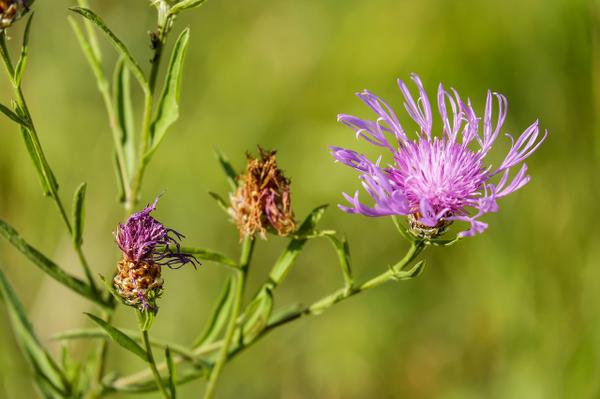
Organic is why our earthworm counts in our valley meadow soils have tripled over ten years, allowing plants to take up nutrients from the soils in greater quantities than ever. Earthworms, because they are the top of the food chain underground, indicate that everything under them is thriving, from soil fungi and beneficial bacteria.
It’s why our hay and pasture yields far exceed the yields of ten years ago. Other ranches and farms use petroleum based fertilizers to increase their yields, but because fertilizers impact soil biota it becomes a treadmill that is very hard to get off from. Maintaining yields requires continued use of chemicals because yields will drop without the chemical crutch. Restoring soil biota takes time, and can be hard to cash-flow.
There’s so much more in the day to day that we see with our intentional decision to be organic from wellness in our beeves to the subtle shift of flavor in our beef (it’s gotten better since we certified). In addition, we get to see the strong backs in the hot sun of our young men and women that wield their trusty grub hoe by hand as they hand dig out noxious weeds on thousands of acres of wild rangelands. I especially relish that sight as I have been there so many times. Grub hoes are good for character building in young and old, I think. Most of them complain, but it’s more a joking complaining. They all find the work satisfying, expending human energy in the work of eradicating weeds in a world that has come to wrongfully disdain human physical labor.
Organic certification is really about you, our friends and partners, because I think that it is asking too much of you to simply trust us. I mean, you’re not here to see our day to day. So I welcome the third party inspection, and voluntary place about $25K per year into the costs of organic production and inspection so that you know we have worked to earn your trust for the rest of our partnership: growing great, nutrient dense protein while being a husband and steward over the wild plants and animals that we share 70 square miles of wild country with.
Thanks for your friendship and partnership. Happy Trails to you all.
Glenn, Caryl, Girls and Cowboys from Alderspring.
Organic Producer Number 520, Certified by the Idaho State Department of Agriculture, under the Authority of the United States Department of Agriculture’s National Organic Program.
Yes. We are proud to bear the seal of USDA/Organic. We earn it every day because you have trusted us.

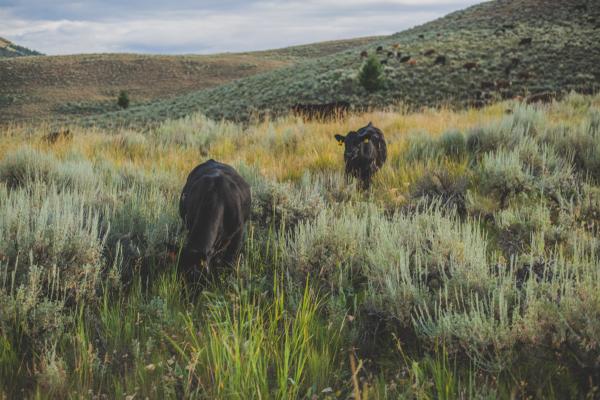
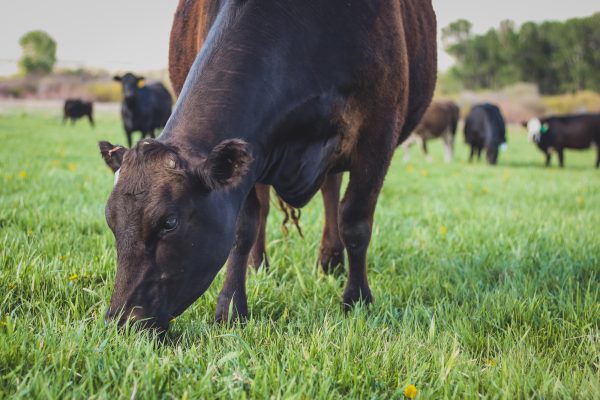
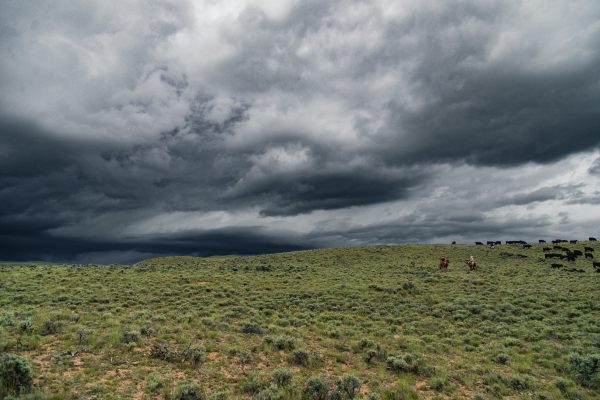


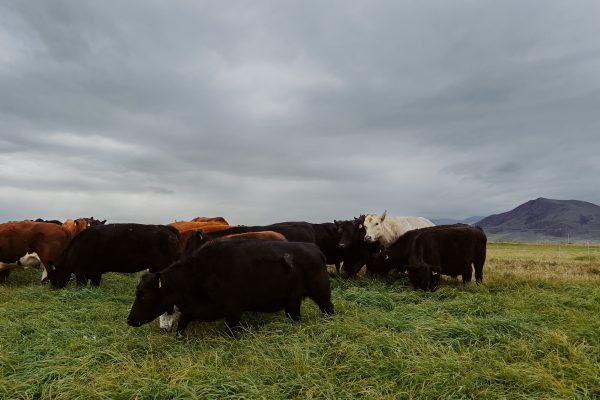

Bill DeGarmo
Excellent story about the day to day operations of a organic farm. Makes me appreciate your operation even more.
Natalie
Thank you for doing things a better and more natural way, and for training those in the next generation who are more likely to follow in your steps.
While I wish there were more certified organic farmers and fewer chemical farmers, and that the organic standards were a bit more rigorous (such as by eliminating hydroponics), at least there seems to be growing interest both by producers and consumers.
Leo Younger
Thanks for mentioning hydroponics. Some USDA Certified Organic producers, especially of berries, microgreens, and leafy greens such as lettuce, have many, but not all, inspectors who certify them. Some inspectors are refusing to certify hydroponic farmers. Those brave inspectors are putting their USDA inspection work at risk, potentially losing their USDA certification status. Please consider visiting the Real Organic Project at https://www.realorganicproject.org/. There, in the upper left, click the About dropdown. Look for Our Certified Farms. Clicking on that will arrive at a Real Organic Project Certified Farms header. A labelled box, Real Organic Project Farms, contains a State/Province scrollable section where you can find Idaho. Highlight Idaho, click Search. Alderspring Ranch is 2nd on the Idaho list. I’ve donated hundreds of dollars to the Real Organic Project which offers certification services to farmers and ranchers for free to producers who can’t afford the fees. I convinced one USDA Certified Organic farmer who is very low income to apply for certification. She is now doubly certified, USDA and Real Organic Project. She still has to maintain USDA Certified Organic status, but because of her very low income, the Real Organic Project certified her small farm at no cost to her. The Real Organic Project is not supported by any governmental entity.
Leo Younger
Thank you for informing us organic consumers about your work to find and eradicate noxious and invasive plants in your ranch properties and in the forests and rangelands for which you have responsibility. The labor involved, plus the biological control work, is inspiring.